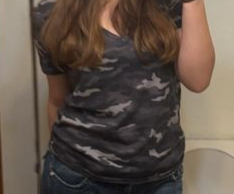The Write Path: Part Two—Forming a Plot
By Brandt Baron on February 22, 2022
Last week was the first week of this series. It was a lot to take in, but I hope it helped you create an idea. So now that you have an idea, I’m going to teach you how to turn it into a fully fleshed out plot and/or storyline.
Try to think about what your idea revolves around? What is it that your idea seems to be most focused on? It could be a character, a place, an event, etc. It doesn’t matter, but there’s always something that your story will revolve around. Once you find the one thing your story is about, you need to try to expand upon that. Why is this character, event or place so important?
The events that take place in your story should stem from that original idea. For example, in Star Wars, the one thing that the entire saga revolves around is Anakin’s turn to the dark side. Without that, the entire story would be pointless. There would only be three movies. Everything after Revenge of the Sith would be cut. Luke wouldn’t have had a big character arc in The Empire Strikes Back when he discovers that Darth Vader is his father. He wouldn’t have had anything to fight against because without Anakin turning to the dark side, the Empire would not have risen. I hope that paints a picture of what it looks like to have everything in your story stem from that main plot point or character.
Another thing you need to do is purposefully think about making your story interesting. Seems like a no brainer, right? But I don’t think a lot of writers intentionally think about the story from the audience’s point of view. Whilst you should write what you want to write, I’m talking about the smaller things. What do you think the audience wants/needs? It might be hard to do this with the first thing you write because you’re probably still building your fan base, but as you begin to write more, you will get a sense of what your audience likes. You need to write a story that your audience and fans will be invested in.
Think about your favorite story/saga. Why do you like it so much? Think about some of the most popular books and movies out there. Why do people like them so much? Do some research on this. Maybe even reread/rewatch those. Find out why they’re so popular and what you can learn from them to improve your story.
Something I think is extremely important and that a LOT of people skip over or don’t think about is the ultimate goal. What is the goal of this story? What’s the ending? You may not always have the exact ending in mind, but you should have somewhat of an idea of how you want it all to end. This will help you as you write the story. Everything is leading up to this big climax.
You need to think about what is going to happen and then why. Why is this happening and how is it going to happen? How are the characters going to reach this point? How is the storyline going to progress toward this climax? What events will push the story and the characters forward? Think about the end and work toward it. “Why?” and “How?” are the questions to ask yourself when thinking about this.
You have to understand that the audience wants something out of your book, movie, play whatever it is. They want something out of it. They are not gonna dive into your story hoping for romance if your story is about international spies. Because if they know something about your story, chances are that’s what they want from it. So, deliver on whatever your story is about and give the audience what they want. An entertaining story that actually has something to do with the theme or genre of the story.
Finally, one of the things I feel is most important when you’re just starting out. Do NOT, for the love of everything that is good in this world, use cliches. They are boring, uncreative and … well, they’re cliche, and no one likes a cliche. Examples of cliches are starting out with the main character waking up in bed with their alarm going off, the two love interests running into each other, having someone come in clutch right in the nick of time. There are SO MANY cliches, and I hate them with every fiber of my being. Any good writer does. Do not use cliches. Use that big creative mind of yours and come up with something legitimately interesting.
So, this week was a bit easier to digest. It can be tough communicating these topics through paper, but after rereading this a few times and editing where it’s needed, I think you should be able to get the gist of what I’m trying to say. If not, here it is.
- Once you find the point in which your story revolves around, expand upon that idea.
- Come up with the reasoning behind the things happening in your story.
- Make the plot interesting. What does the audience want/need?
- What is the ultimate goal of the story and how are you going to get there?
- DO NOT USE CLICHES!!!
Next week I’ll be talking about characters and character arcs: how to approach them and what to do once you’ve created your characters.
Search
News

Rocket League team advances to Nationals
Rusty Sheehan | May 31, 2024A little while ago, the beginning of the esports season was covered by the Tiger Hi-Line, including the rocket league team who, at the time, was in the process...
-
 Lana Greenleaf | May 29, 2024
Lana Greenleaf | May 29, 2024
HCC technology camps can expand young learners’ coding knowledge coding, more
-
 Lana Greenleaf | May 21, 2024
Lana Greenleaf | May 21, 2024
-
 Hanna Lane | May 21, 2024
Hanna Lane | May 21, 2024
-
 Lana Greenleaf | May 15, 2024
Lana Greenleaf | May 15, 2024
Incoming seventh graders can prepare for junior high with Boost
-
About
The Tiger Hi-Line Online is an award-winning creation produced by the journalism students at Cedar Falls High School. We produce written, photographic and video stories of the latest news around campus as well as teen-centered topics from around the world. The content is created entirely by students, primarily from the newspaper, broadcast and yearbook courses at Cedar Falls High School. Please email any story ideas to hilinestaff@gmail.com.Tags
2018-2019 2019-2020 alayna yates AOTW art artist of the week athlete of the week basketball books Cedar Falls High School CFHS choir Christmas college COVID donald trump Eden Davis entertainment Erin McRae feature Football games halloween home homecoming Iowa Jaden Merrick jared hylton movies music news opinion our view politics prom robotics Sabine Martin Sal Engle Skylar Promer Sophia Schillinger sports state Swimming video games volleyball




You must be logged in to post a comment Login